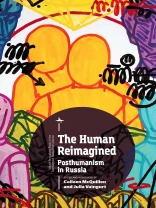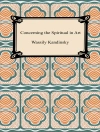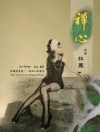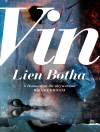The enmeshment of the human body with various forms of technology is a phenomenon that characterizes lived and imagined experiences in Russian arts of the modernist and postmodernist eras. In contrast to the post-revolutionary fixation on mechanical engineering, industrial progress, and the body as a machine, the postmodern, postindustrial period probes the meaning of being human not only from a physical, bodily perspective, but also from the philosophical perspectives of subjectivity and consciousness.
The Human Reimagined examines the ways in which literary and artistic representations of the body, selfhood, subjectivity, and consciousness illuminate late- and post-Soviet ideas about the changing relationships among the individual, the environment, technology, and society.
Contributors include: Alex Anikina, Keti Chukhrov, Jacob Emery, Elana Gomel, Sofya Khagi, Katerina Lakhmitko, Colleen Mc Quillen, Jonathan Brooks Platt, Kristina Toland, Julia Vaingurt, Diana Kurkovsky West, Trevor Wilson
Tabla de materias
I. Introduction
a. Critical Posthumanism
b. Posthumanism in Russia
c. Overview of the Articles
II. Questions of Ethics and Alterity
1. Our Posthuman Past: Subjectivity, History and Utopia in Late-Soviet Science Fiction
Elana Gomel, Tel Aviv University
2. Digressions in Progress: Posthuman Loneliness and the Will to Play in the Work of the Strugatsky Brothers
Julia Vaingurt, University of Illinois at Chicago
3. Humans, Animals, Machines: Scenarios of Raschelovechivanie in Gray Goo and Matisse
Sofya Khagi, University of Michigan
III. Natural, Built, and Imagined Environments
4. Environmentalism and the Man of the Future: Discursive Practices in the 1970s
Colleen Mc Quillen, University of Illinois at Chicago
5. Daedalus and the Cyborg: Human-Machine Hybridity in Late-Soviet Design
Diana Kurkovsky West, European University at St. Petersburg
6. Some Entropy in Your Tea: Notes on the Ontopoetics of Artificial Intelligence
Alex Anikina, Goldsmiths, University of London
IV. Technologies of the Self
7. Romantic Aesthetics and Cybernetic Fiction
Jacob Emery, Indiana University
8. Writing and Technology: Writing the Self in ‘Real Time’
Kristina Toland, Bowdoin College
9. Modes of Perception in Transmodal Fiction: New Russian Subjectivity
Katerina Lakhmitko, University of Illinois at Urbana-Champaign
V. Politics and Social Action
10. Nothing but Mammals: Post-Soviet Sexuality after the End of History
Trevor Wilson, University of Pittsburgh
11. Postsocialist Platonov: The Question of Humanism and the New Russian Left
Jonathan Brooks Platt, University of Pittsburgh
VI. Afterword
Keti Chukhrov, an interview by Alina Kotova about Love Machines
Sobre el autor
Julia Vaingurt is associate professor in the Department of Slavic and Baltic Languages and Literatures at the University of Illinois at Chicago. She has published widely on Russian modernism and avant-garde, including Wonderlands of the Avant-Garde: Technology and Arts in Russia of the 1920s (Northwestern University Press, 2013).












